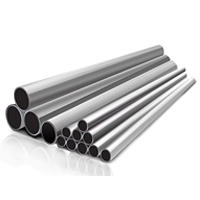 Titanium is represented as Ti in the periodic table with atomic number 22 and atomic weight 47.9. The commercial usage of titanium is started from the 1950s. At that time, titanium grade has its strategic importance due to its low weight, structural, and lightweight. Increase in metal demand, improved manufacturing practices, and trending machines, production capability and availability of markets dramatically lowered the price of titanium grade products.
Titanium is represented as Ti in the periodic table with atomic number 22 and atomic weight 47.9. The commercial usage of titanium is started from the 1950s. At that time, titanium grade has its strategic importance due to its low weight, structural, and lightweight. Increase in metal demand, improved manufacturing practices, and trending machines, production capability and availability of markets dramatically lowered the price of titanium grade products.
Nowadays, titanium grade is commonly and readily available engineered alloy that competes with other conventional alloys and other composites. It is the 9th abundant element found on earth crust and 4th structural metal currently come to use in various engineering sectors.
Why select titanium grade alloys?
Titanium grade exhibits a unique amalgamation of physical and mechanical properties. It has outstanding corrosion resistance which has made them desirable for critical and demanding applications such as aerospace, chemical, industrial and energy processing industries. The primary attributes of these alloys are elevated strength to density ratio. It has high structural efficiency. It has a low density. It has excellent elevated temperature properties up to 600 degree C. The density ratio represents the conventional primary factor for selection and design for aerospace components and equipment.
Titanium Grade 1 Pipes are available in all sizes.
It has exceptional corrosion and abrasion resistance properties provide the prime motivation for chemical processing industries. Titanium reveals outstanding structural efficiency, especially when the temperature is increased. Grade offers excellent elevated temperature properties for hot gas turbine and high thermal applications, where creep resistance alloys are selected for operating in temperature up to 1100 degree F.
The family of titanium grade offers a wide spectrum of strength with combination tensile strength and fracture toughness. This grade permits optimization which can be tailored for critical component design. It is controlled by fatigue strength and toughness and crack growth while in an application. With excellent fatigue strength and life in moist air, it is unaffected by marine water and other reducing environments. These alloys can be processed to provide high fracture toughness with nominal environmental erosion. In fact, the lower strength version alloys are generally resistance to stress corrosion cracking (SSC) and corrosion fatigue in wet chloride media.
For critically pressurize components and vessel for heating industrial applications, titanium grade qualified under numerous devise codes. It exhibits exceptional resistance to the vast range of chemical environments. It forms a thin invisible but dense protective surface oxide film. This film is called tio2 that is highly tenacious, chemically stable and adherent and instantly reheals itself in case of mechanical damages if the small traces of oxygen and moisture present on surroundings. This grade extends protection from mildly reducing to severely oxidizing environments. Also, from concentric acidic to least alkaline environments even at elevated temperatures.
Titanium grade is especially known for its improved resistance to general attacks and stress corrosion in environments containing chlorides, halides, and other wet halogens. It is also recognized for its superior resistance to cavitations and impingement inflow of turbulent fluids. These have great weldability too.
This is all basic details about titanium grade.
